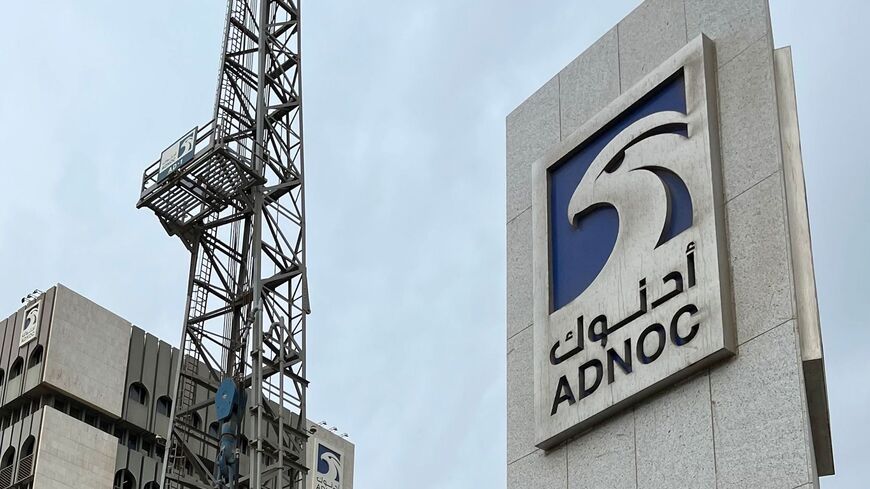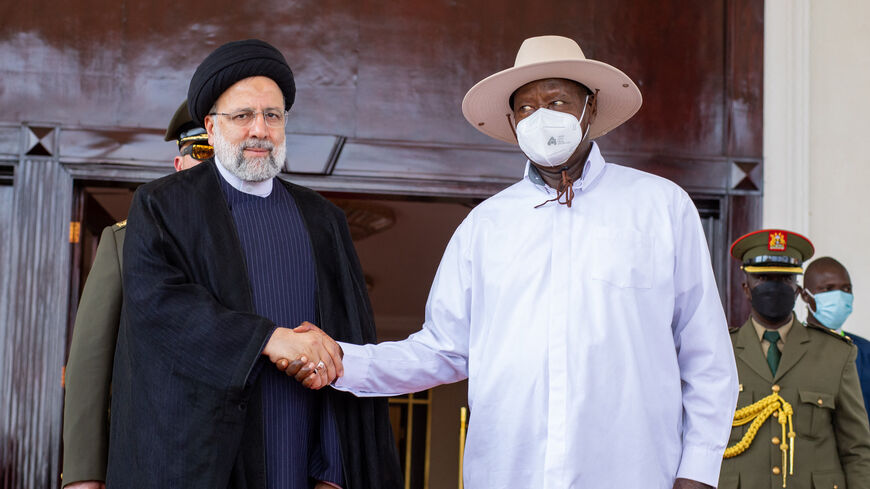Saudi Arabia tech talent unlikely to meet industry needs by 2030
Al-Monitor Pro Members
Tamara Juburi
Researcher and analyst focusing on the Middle East
March 20, 2023
Saudi Arabia signed investment programs amounting to more than $2 billion in support of tech start-ups during its annual tech conference LEAP, which was held in February. In a push to future-proof its industries, consolidate its position on the international stage, and prepare the next generation of its workforce for the digital age, Saudi Arabia is investing heavily in digital transformation. Under the framework of Vision 2030, the government has announced plans for technology spending to rise to more than 20% of total national spending by 2025, which would make Saudi Arabia the highest tech spender worldwide. Saudi Arabia's ability to mature its tech industry while still meeting subsequent demand for talent hinges on two things: attracting foreign workers to meet labor demands in the short- to mid-term, and ensuring that it can upskill and specialize its local workforce to sustain this talent pipeline in the long term. Whether or not the latter objective can be met will depend heavily on how high-volume government investments translate into meaningful change and whether Saudi Arabia will be able to effectively differentiate itself from its GCC neighbors, who share the ambition to become leading innovation players.
- Since coming into power, Saudi Arabia’s crown prince and de-facto leader Mohammad bin Salman has made it his mission to diversify the kingdom’s economy through Vision 2030. One integral component of the economic transformation is shifting toward a digital economy and introducing measures to effectively attract investment, promote innovation and cultivate a digitally competent workforce. Investment in the research, development and innovation sector is forecast to increase the nation’s GDP by $16 billion by the end of the decade.
- The proposed developments are detailed in the National Science, Technology and Innovation Plan (NSTIP), the first step of which is to invest in research and development within universities that promote tech transfer while also bolstering human resource capacities. Areas that are considered strategically important to focus on include biotech, nanotechnology, IT, space and the environment, amongst others.
- In order for such intentions to translate into a bustling and competitive industry, Saudi Arabia will need to foster tech talent locally. Recognizing this, the government announced in 2021 that more than $1 billion would be put toward improving the digital skills of 100,000 Saudi youth by 2030 in an effort to achieve "Saudization" and ensure that at least 40% of the local workforce is trained in data and AI by 2030. The Saudi Press Agency reported in 2020 that the rate of Saudization in the tech sector had surpassed 50%, with more than 20% of these posts being held by women.
- An analysis conducted by Korn Ferry projected that Saudi Arabia will have a deficit of 630,000 highly specialized workers in 2030, up from 107,000 in 2020. More than 40,000 of these roles are expected to be concentrated in the technology and telecommunications sectors by the end of the decade.
- An analysis of jobs posted on LinkedIn showed that the most in-demand tech roles in Saudi Arabia during 2022 included cybersecurity specialists, UX designers, data analysts, software developers and information technology managers.
- Saudi Arabia’s ICT Strategy explicitly states that more than 25,000 jobs will be created in the tech sector in 2023, with growth set to be concentrated in the following sub-sectors: cybersecurity, IoT, cloud computing, AI, 5G, e-commerce and consumer electronics. Despite such promises, there is a lack of data pointing to the uptake of programs aimed at bolstering digital skills locally.
- Foreign workers, who currently make up more than 50% of Saudi Arabia’s IT industry, can go some way in accounting for the kingdom's continued need for specialized tech workers. However, as other Gulf countries scramble to diversify their own economies and secure their positions on the global stage, Saudi Arabia will need to compete with its neighbors to become the most attractive option for foreign talent.
Scenario 1: Saudi Arabia will meet its targets and have the means to support and uphold its tech boom.
Significant progress has been made in developing Saudi Arabia’s tech industry thus far. Big tech players including Google, Alibaba and Oracle have announced investment in the country to create innovation hubs. Last year, Minister of Communication and Information Technology Abdulla Alswaha told Reuters that the kingdom’s tech and digital market was valued at $40 billion, making it the largest in the region.
To support its continued growth, other ecosystem development tools have been introduced, such as the creation of co-working spaces and entrepreneurial support programs. One notable initiative is The Garage, a startup district offering a physical space and training services including incubators and accelerators alongside grant investments. Developing the skills of Saudi youth is another fundamental component, given that current estimates show that two-thirds of the nation’s population is under 35. These advancements, coupled with the growing inclusion of women in the workforce, have propelled Saudi Arabia’s ability to innovate in the short term.
Scenario 2: Competition in the region will see the UAE attracting more international tech talent than Saudi Arabia.
Other GCC countries, including the UAE, share the goal of becoming the regional lead on tech innovation over the next few decades. The UAE’s Digital Economy Strategy aims to raise the contribution of the digital economy from 9.7% of total GDP in 2022 to 19.4% in 2032. Leading sub-sectors include cloud computing, where $1 billion is expected to be invested between now and 2026.
The UAE has a significant competitive advantage over Saudi Arabia: It has a larger pool of foreign workers, which account for more than 90% of the workforce in the private sector. Based on this, it is in a better position to continue attracting foreign talent to fill more specialized roles in technology. This, in part, is supported by the nation’s well-established tourism industry, which absorbs most visitors to the GCC and has allowed the UAE to brand itself as a modern and moderate hub in the MENA region. Whereas the UAE can use its reputation as a tourist hub to leverage tech development and market itself as the most attractive option for foreigners seeking work, Saudi Arabia is developing its tourism industry in tandem with its innovation efforts. The significant number of foreigners residing in the UAE, as well as others who may be considering the move, can go some way in securing its tech talent pipeline in the coming decades. In order to compete, Saudi Arabia will have to convince foreign publics that it has more to offer than the UAE and other smaller Gulf states.
Considering that Saudi Arabia’s efforts to develop its tech industry are still in their infancy, their achievements have been significant. The 2021 Digital Competitiveness Report ranked the country second globally among G20 countries. However, translating the intention to become a regional tech hub into a dynamic local ecosystem will require more than high-volume investments. In particular, the promotion of tech transfer and collaboration in spaces such as The Garage will take years to mature, as will the outputs of incubation and accelerator programs. One piece of the puzzle that has been relatively under-accounted for is adoption: how to channel innovations from producer to consumer.
Additionally, although training programs are being offered to Saudi youth under Vision 2030’s Human Capability Development Program, their uptake and consequent outputs are currently unclear. The likelihood is that initiatives aimed at making a digitally native workforce, with specific skills in areas including cybersecurity, AI and programming, will require early education programs and a cultural shift that will only translate into practical skills beyond the 2030 mark. Their competitiveness compared to their global counterparts will also hinge on how much collaboration occurs, both by sending Saudis to gain experience working abroad and by inviting foreign talent into the nation. To address the potential divide between demand for tech talent and local supply, Saudi Arabia loosened visa restrictions in 2020 such that foreign tech talents are now eligible for "instant" visas when offered a job at a locally registered business. Similarly, policies allowing experts and exceptional global talents to gain Saudi citizenship have also been formalized, which attests to the urgent need for talent attraction. Although current investment is likely to translate into a secure pipeline of local tech talent in the future, it is unlikely that these efforts will result in the desired outputs by 2030, as hoped by the Saudi government.
Tamara Juburi is a researcher and analyst focusing on the Middle East. Her particular areas of interest include entrepreneurship in the GCC, the evolving nature of the relationship between the EU and the region, and how global diplomacy translates into local business and trade opportunities.
We're glad you're interested in this memo.
Memos are one of several features available only to PRO Expert members. Become a member to read the full memos and get access to all exclusive PRO content.

Already a Member? Sign in
The Middle East's Best Newsletters
Join over 50,000 readers who access our journalists dedicated newsletters, covering the top political, security, business and tech issues across the region each week.
Delivered straight to your inbox.
Free
What's included:
Free newsletters available:
- The Takeaway & Week in Review
- Middle East Minute (AM)
- Daily Briefing (PM)
- Business & Tech Briefing
- Security Briefing
- Gulf Briefing
- Israel Briefing
- Palestine Briefing
- Turkey Briefing
- Iraq Briefing
Premium Membership
Join the Middle East's most notable experts for premium memos, trend reports, live video Q&A, and intimate in-person events, each detailing exclusive insights on business and geopolitical trends shaping the region.
$25.00 / month
billed annually
$31.00 / month
billed monthly
What's included:
Memos - premium analytical writing: actionable insights on markets and geopolitics.
Live Video Q&A - Hear from our top journalists and regional experts.
Special Events - Intimate in-person events with business & political VIPs.
Trend Reports - Deep dive analysis on market updates.
We also offer team plans. Please send an email to pro.support@al-monitor.com and we'll onboard your team.
Already a Member? Sign in






